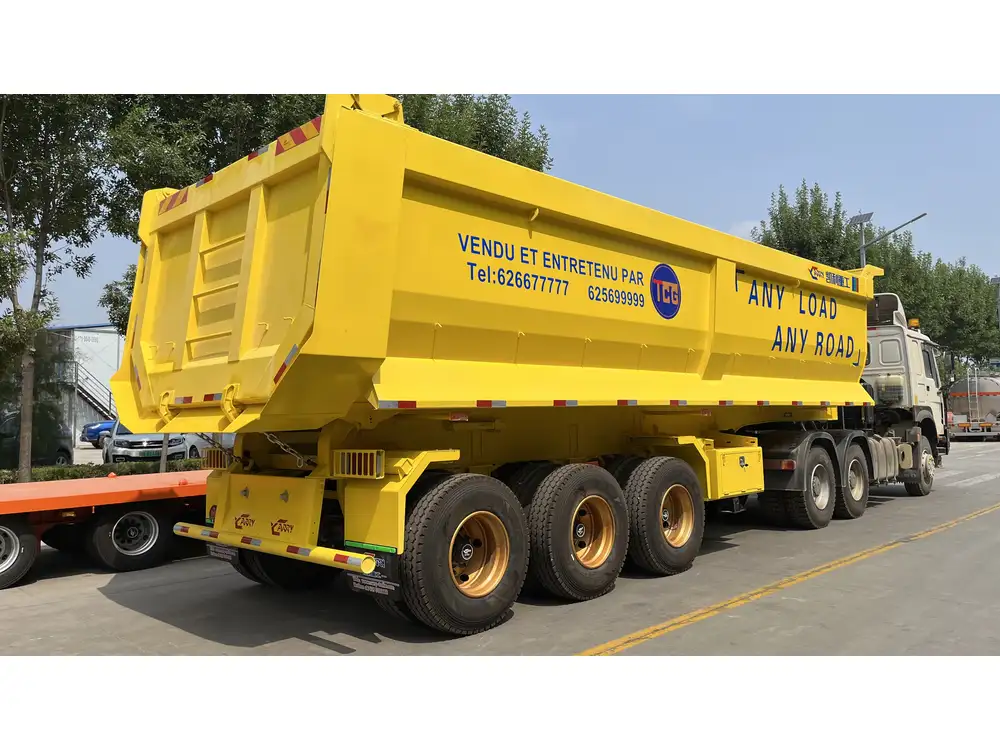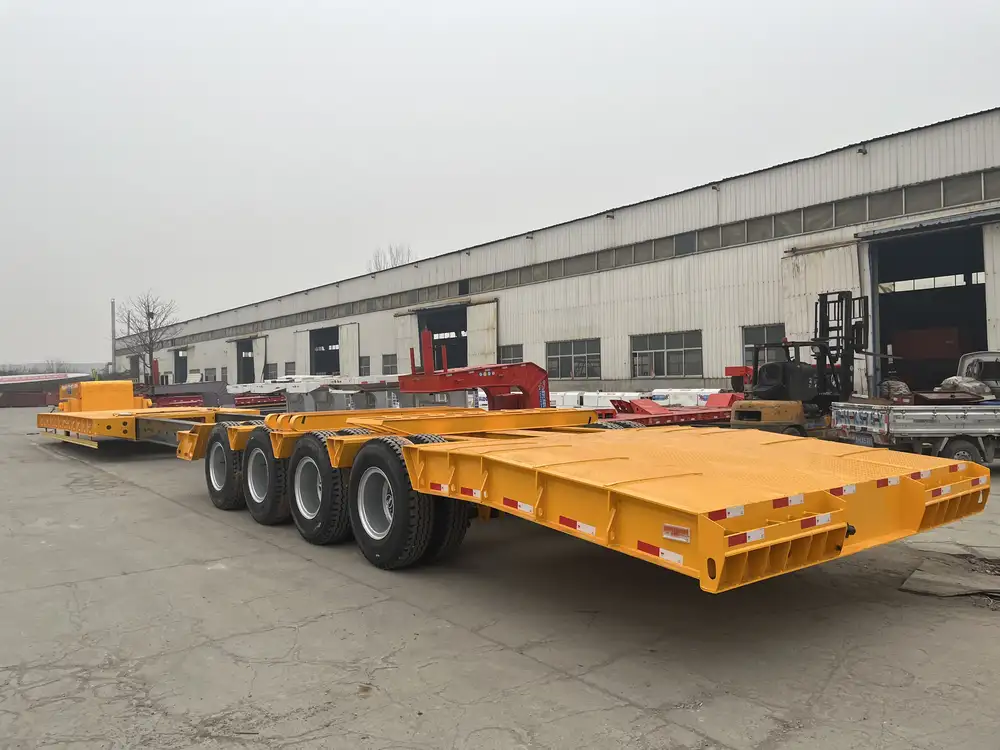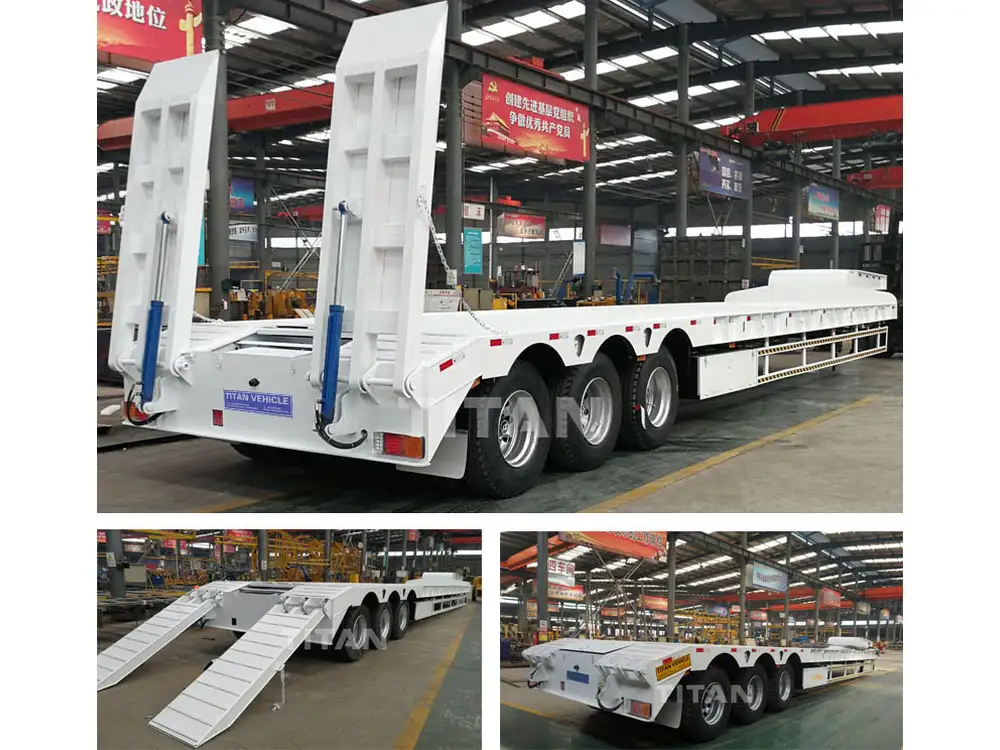In the complex world of tax regulations and deductions, it is crucial for business owners operating with semi-trailers to understand how they are classified and the potential repercussions on tax returns. Semi-trailers are pivotal in the freight and transportation industry, serving as a vital asset for logistics operations. However, the question arises: Is a semi-trailer considered a vehicle for tax return purposes? In this comprehensive guide, we aim to clarify this pivotal issue alongside the intricate details surrounding the tax treatment of semi-trailers.
Definition and Classification of Semi-Trailers
What is a Semi-Trailer?
A semi-trailer is a type of trailer that connects to a truck using a fifth wheel hitch. Unlike full trailers, semi-trailers lack a front axle, allowing for a more efficient load distribution and better maneuverability. This design makes them an essential component in the transportation of goods across various distances.

Vehicle Classification
According to the IRS and various state tax guidelines, the classification of vehicles for tax purposes can significantly influence deductions and tax liabilities. Under the Internal Revenue Code, a vehicle is broadly defined as any machine that is capable of transportation on public streets or highways. However, when it comes to semi-trailers, the classification can be nuanced.
| Feature | Semi-Trailer | Full Trailer |
|---|---|---|
| Axles | Typically two to five | Two or more, with front axle |
| Connection Method | Attached using a fifth wheel | Towed by vehicle’s rear end |
| Load Capacity | Generally higher due to design | Lower, often limited by tow capacity |
| Tax Treatment | Specific to business use and deductions | Broader, can include personal usage |
Tax Implications for Semi-Trailers
Depreciation Deductions
One of the primary advantages of possessing a semi-trailer is the ability to claim depreciation. Under Section 168 of the Internal Revenue Code, a taxpayer can depreciate the cost of the semi-trailer over a set period, which typically spans three, five, or seven years. However, the exact period may depend on factors such as its use and configuration.
Bonus Depreciation: As part of the Tax Cuts and Jobs Act (TCJA), businesses might be eligible for bonus depreciation, allowing them to deduct a significant portion of the semi-trailer’s cost in the year it is placed into service.
Section 179 Expensing: In certain cases, businesses can fully expense the purchase of a semi-trailer under Section 179, provided it meets specific weight and use criteria.

Sales and Use Tax
When acquiring a semi-trailer, potential sales taxes may arise. Most states impose sales tax during the purchase or lease of a vehicle, including semi-trailers. Understanding your state’s specific regulation is crucial, as sales tax can significantly impact your bottom line. Additionally, states may offer exemptions based on the intended use of the trailer.
Fuel and Operating Expenses
Another area where tax implications arise is through the operational costs associated with semi-trailers. These include fuel, maintenance, insurance, and other expenses directly related to transportation. Generally, these costs can be deducted as business expenses:
- Fuel Expenses: Fuel used solely for business operations can be deducted according to IRS guidelines.
- Maintenance Costs: Routine repairs and maintenance necessary to keep semi-trailers operational can be expensible.
- Insurance Premiums: Premiums for truck and trailer insurance are commonly eligible for deductions.
Is a Semi-Trailer a Vehicle for Tax Return Purposes?

Federal Tax Guidelines
The IRS does not provide a definitive classification for semi-trailers as vehicles in the same context as trucks and cars. However, in practice, semi-trailers are recognized under Section 280F as “listed property,” which pertains to assets primarily used for business. This designation means that while a semi-trailer is not classified as a traditional vehicle, it is treated as equipment necessary for business use.
State Specificities and Variations
The treatment of semi-trailers can differ significantly from state to state. For instance:
- California: Semi-trailers are considered commercial vehicles; hence companies are subject to different licensing fees and taxes.
- Texas: The classification can depend on weight and intended use; liability insurance is heavily regulated, impacting deductions.
This differentiation underscores the necessity for business owners to consult state-specific tax stipulations before filing their returns.
Enhancing Tax Compliance and Maximizing Deductions

Document Management
Maintaining thorough documentation is paramount to ensure compliance with IRS regulations and maximize potential deductions. Essential documents for semi-trailer owners include:
- Purchase Receipts: Proof of purchase is necessary for depreciation calculations.
- Mileage Logs: Detailed logs distinguishing between business miles and personal use help substantiate claims for operating expense deductions.
- Receipts for Maintenance and Repairs: Keep meticulous records for all maintenance work done on the semi-trailer to support deduction claims.
Consult with Tax Professionals
Due to the complexities involved in tax regulations surrounding semi-trailers, working with experienced tax professionals can provide a significant advantage. They can assist in strategic decisions regarding the optimum method for claiming deductions and tax credits tailored to the specific business model.
Considerations for Business Owners

Business Structure Implications
The structure of your business may influence how semi-trailers are treated for tax purposes. Auto dealerships, logistics firms, and individual delivery services might have different eligibility criteria based on their operational scope and the specific usage of semi-trailers.
- Sole Proprietorships: Must account for both personal and business usage of their semi-trailer in tax documentation.
- Partnerships and Corporations: May have clearer guidelines due to formalized accounting practices.
Future Legislative Changes
Tax regulations are dynamic and subject to change based on legislative actions. Staying informed about the latest tax laws and proposed changes can help businesses proactively adjust their strategies concerning semi-trailer usage and tax filings.
Importance of Proper Insurance
Insurance plays a vital role in the taxation and operational management of semi-trailers. Adequate coverage is essential to protect against potential liabilities, ensuring compliance with state regulations. Recording insurance expenses accurately contributes to the overall deductions that can be claimed on tax returns.

Conclusion
Understanding if a semi-trailer qualifies as a vehicle for tax return purposes involves dissecting various tax codes, state regulations, and operational contexts. Semi-trailers play a crucial role in transportation logistics, yet their treatment under tax law can be ambiguous.
In conclusion, we hope this comprehensive analysis assists semi-trailer owners in navigating the complexities of tax liabilities and enhances their understanding of potential deductions. By taking advantage of depreciation, operational expense deductions, and remaining compliant with federal and state regulations, businesses can optimize their operational costs and maximize the advantages afforded to them under tax law.
Key Takeaways
- Clarity on Classification: Semi-trailers are considered “listed property” but have specific tax implications.
- Depreciation Benefits: Potential for significant deductions through depreciation methods.
- State Variations: Classification and treatment may vary significantly by state.
- Essential Documentation: Keeping thorough records will strengthen deduction claims.
- Professional Guidance: Consulting with tax professionals is recommended for tailored strategies.
By accruing and leveraging such information, businesses can adeptly maneuver through the financial intricacies tied to their semi-trailer operations and ensure they are maximizing every dollar for the success of their business.



